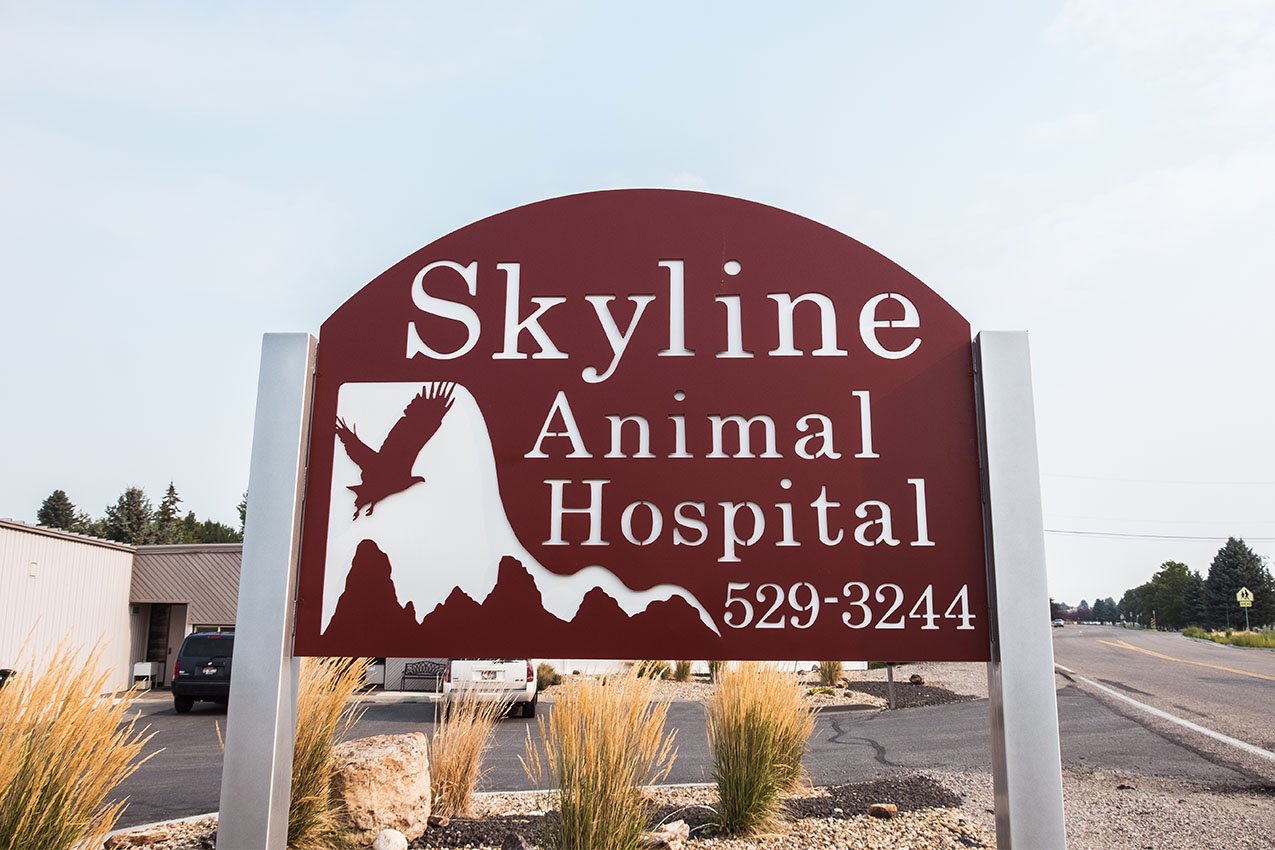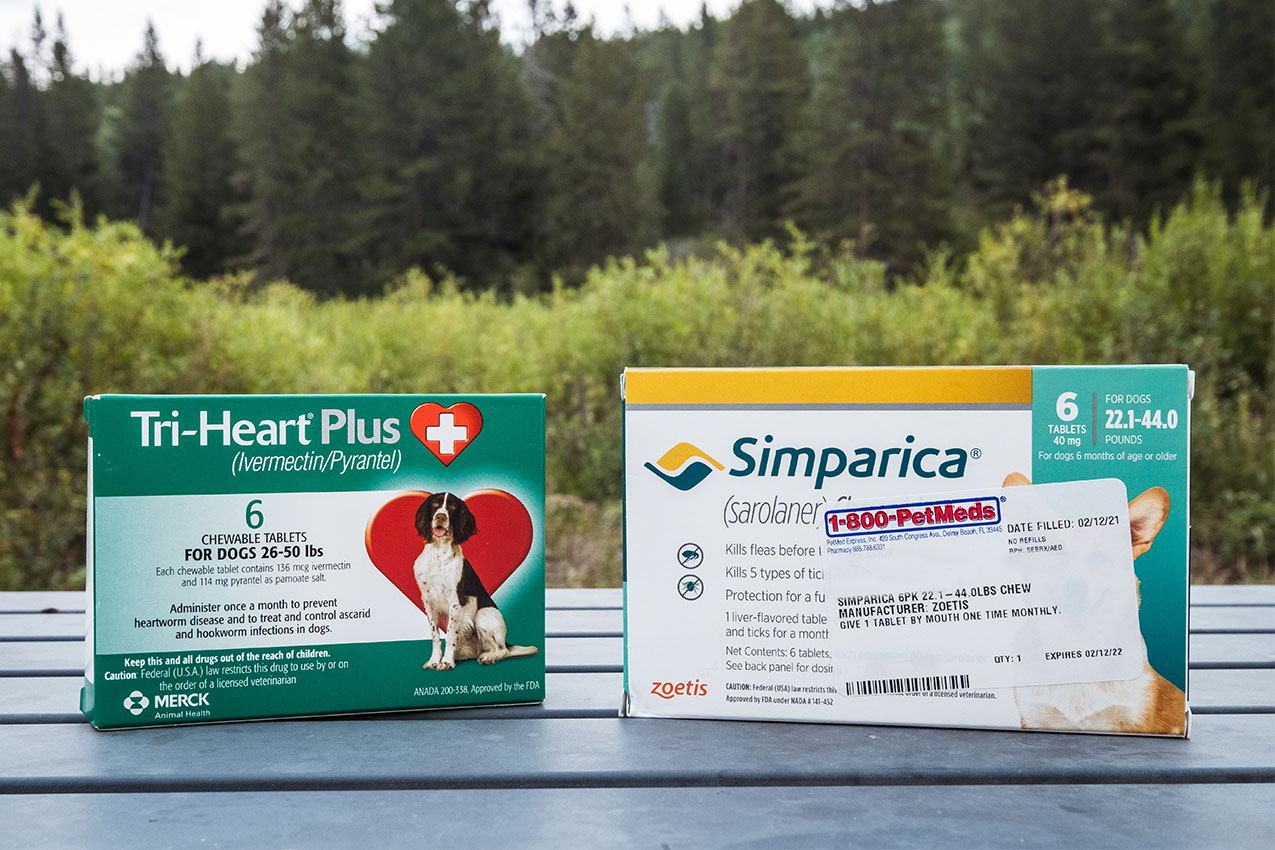Like many RV travelers, you likely don’t want to leave your pet behind when you hit the road. Something about having your best furry friend by your side as you hit the open road makes every adventure that much better. Even if you’re just headed out for a weekend trip, it pays to be prepared when it comes to caring for and handling emergencies with your pets.
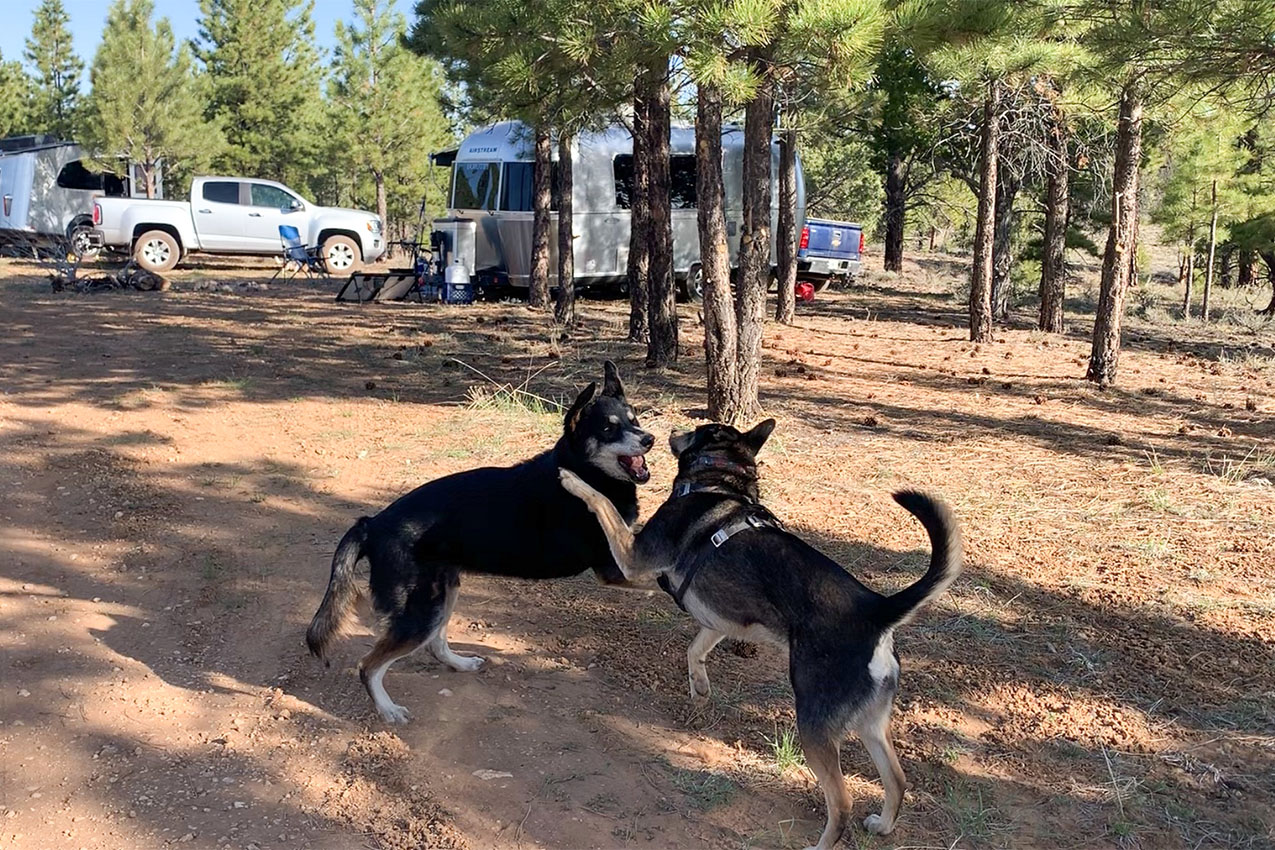
Photo by: Lveloz
If you plan to be on the road for a few months (or indefinitely), you’ll want to put extra care into ensuring that your pet is getting the best quality care while you travel. This article walks you through how to attend to routine medical care and emergency medical care for your pet.
What to Prep Before Your Trip
Veterinary Care
A little bit of preparation goes a long way when you bring your pet on an RV adventure. Depending on how long you will be on the road or where you are traveling, you may decide to go to the vet for a routine checkup before you depart.
While you are there, you can get updated documents, vaccinations, and any medications/prescriptions your dog regularly takes. Be sure to ask the veterinarian if they recommend any additional vaccines or treatments for the areas you are traveling. For example, ticks and Lyme disease may not be a big deal in some parts of the West, but it’s a very real risk in the northeast.
If you are a full-time traveler (or even travel for months at a time with your pet), pet health insurance can be an excellent investment. When you decide to get health insurance for your pet, it is often easiest to get it through a vet clinic with multiple locations across the country. Many Petco and PetSmart locations have vet clinics inside of them that also have insurance.
Packing For Your Pet
Pets, especially dogs, tend to have a fair amount of their own gear and personal belongings that will help keep them comfortable while on the road. Having a “go bag” of some kind to keep everything together will help you stay organized, and you’re less likely to forget something.
What you bring for your pet will vary depending on their needs. Still, all pets should have up-to-date vaccination records, insurance information, medications/prescriptions, and the pet poison control info handy.
If you have a dog, don’t forget to pack enough flea/tick and heartworm medication for your time on the road. You can pick up both flea/tick and heartworm meds at most pet stores and vet clinics, but if they are out (this has happened to me before), it is good to always have a few month’s supply on hand.
No matter the kind of journey you are on with your pet, always have a well-stocked pet first aid kit. Many of the items in your first aid kit apply to pets, but some specialized items and cleaning solutions are recommended depending on the type of pet you have.
For instance, if you have a dog, paw injuries are the most common. So, having extra bandages and wrappings for their paws can be helpful, especially when boondocking and reaching the nearest town is more time-consuming. If you are unfamiliar with pet first aid, you can take classes and get an instructional manual to learn the basics. It is recommended that if you are on a long trip with your pet that you also learn things like CPR and the Heimlich specific to their species.
Routine Vet Care on the Road
Some travelers choose to stay in one location for a few months at a time, and if that is the case, you should still follow the recommendations above, but it does make routine vet care a little bit easier. When you arrive at your new location, research local vet clinics and contact them to let you know you are a traveler and in the area for several months. They may ask for medical records for your pet, but once they have them in their system, it will be much easier to make appointments for routine vet care like vaccinations and checkups.
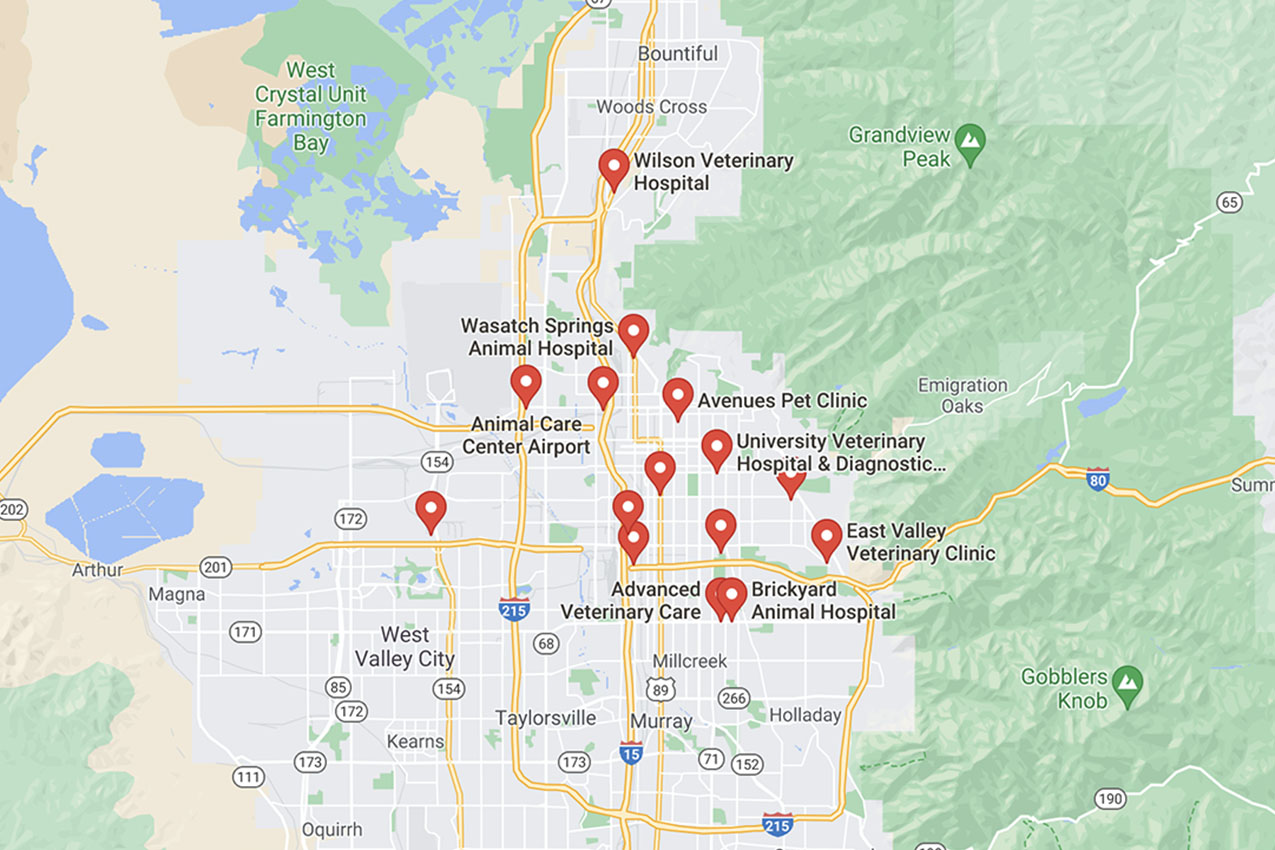
Getting your pet’s vet clinic chosen when you arrive may not feel necessary, but it is a great habit to get into just in case there is an emergency of some kind. That way, you can get them the care they need faster, and you don’t have to worry about forgetting any documents.
For those of you who are on the road and don’t stay long in a location, chain vet services can be helpful. VCA or Banfield Pet Hospital keep your pet’s information in a shared database, so when you need to schedule an appointment, you can do so at any of their locations.
Much like visiting the doctor yourself, vet clinics are busy! So, if you know you will be passing through an area and your pet needs his vaccines updated, try to make appointments at least a week in advance. You can rarely get a vet appointment on the same day unless it is an emergency, so plan accordingly.
Beyond vet care, keeping up with nail clippings, baths, and other grooming is important. You may be able to do some of this care yourself, otherwise plan to schedule a trip to the groomers when you are passing through an area or staying in a place for a few days. Grooming appointments should also be made in advance.
Tip: If you are boarding your pet for any reason during your travel, most boarding locations have grooming options, too.
Emergency Vet Care on the Road
Preparedness goes a long way in any medical emergency, and the same goes for your pet. As mentioned, carry a well-stocked first aid kit, and if you tend to participate in outdoor adventures like hiking with your pet, always carry it when on the trail. First aid kits can help stabilize your pet depending on the emergency to give you more time to reach an urgent care clinic.
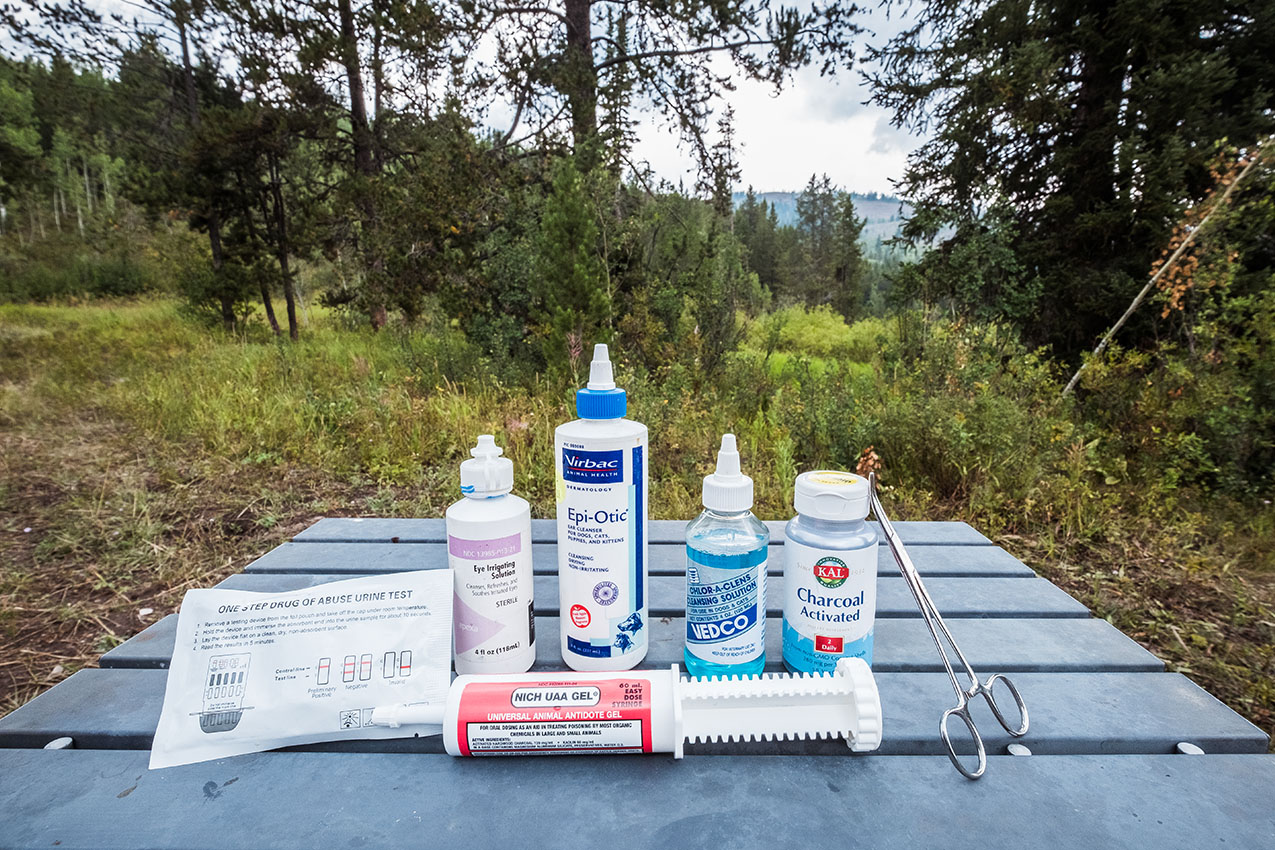
When you know you will be camping in an area that does not have reception, before you lose service, it is wise to look up the closest vet clinic and hospital in case of emergency. This will save you some time and stress while handling the situation at the moment.
Keeping a “go-bag” for your pet is also ideal for emergencies, so you can quickly grab their bag that has their records and everything else they need without wasting much time at all.
When choosing the right clinic when you are on the road, look for vet urgent care locations or 24-hour vet clinics. Very few standard vet clinics are open in the evenings, and many don’t open until 10 am, so seek out places that you can contact at any time.
Other Tips and Tricks for Traveling With Your Pet
One of the best things you can do for your furry travel companion is keeping them comfortable and well cared for while you are on the road. This often means evaluating your circumstances and your pet’s needs and planning around those.
For example, if your dog will be taking extended road trips with you, invest in driving safety gear for your dogs, like a harness and seatbelt combo. Research the areas you are visiting to ensure dogs are allowed and never leave your dog unattended in the car for more than a couple of minutes.
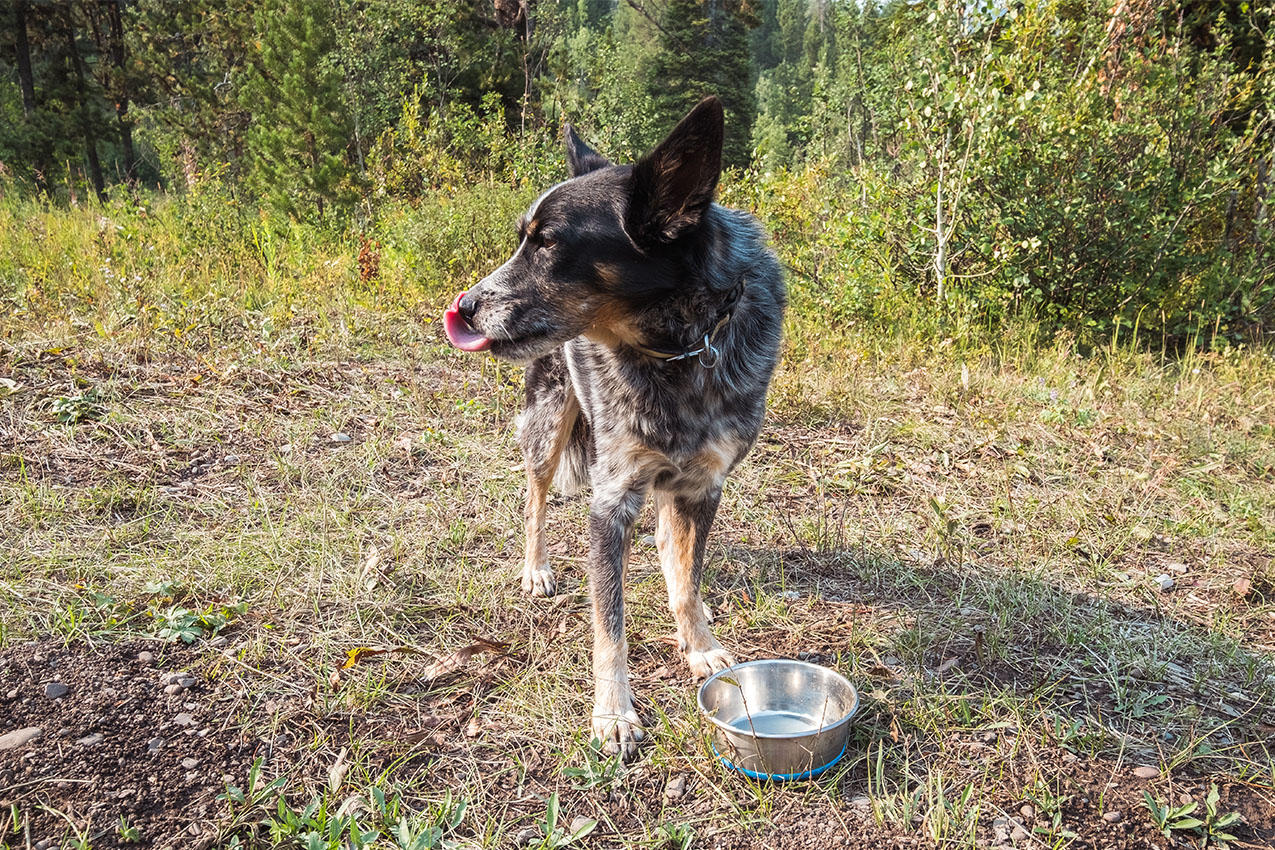
In this same circumstance, be sure that you always have enough food and water for your pet. Changing food as you travel is doable but ill-advised. Most dogs take a few weeks to acclimate to new dog food, and some dog foods can make them sick (i.e., vomiting and diarrhea). These food-related illnesses are easily avoidable by feeding the same type of food throughout your trip. If you order food online, find a shipping location that allows you to pick it up on the go. Check out more on how to receive mail while on the road.
Especially when you are camping, get in the habit of checking your pet for ticks, fleas, and minor injuries that could become infections. If you have a pet that doesn’t like these checks, turn it into a nightly routine, and they will adjust to it. For squirmy dogs require a check before they eat in the evening, and they will slowly begin to see it as part of their dinner routine.
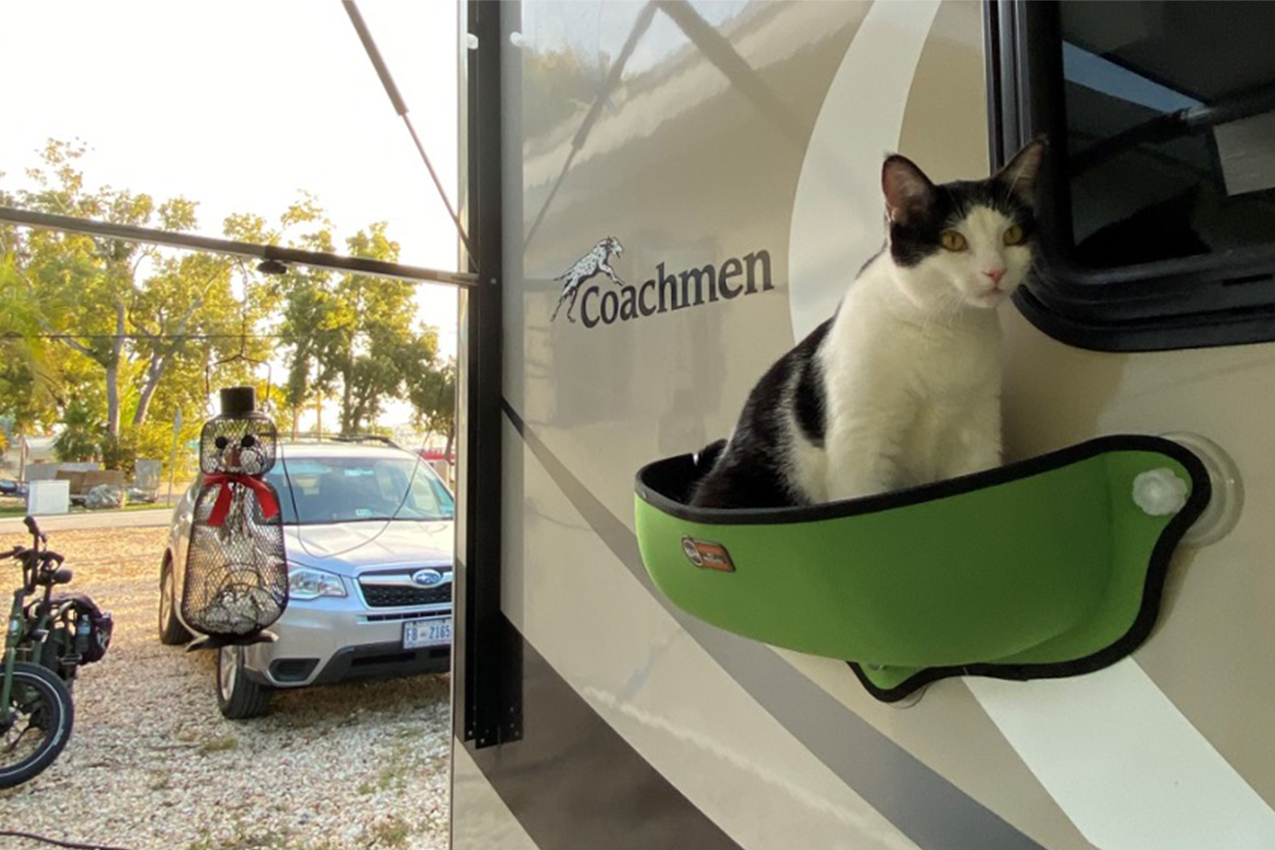
Photo by: Stewbachs
In the end, traveling with a pet is rewarding for both you and them. It doesn’t have to be complicated to make sure they are well cared for when you are on the road, and remember, a little prep goes a long way.
What tips do you have for getting vet care for your pet when traveling? Let us know in the comments below!
